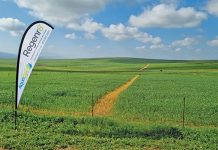A national crisis looms if government doesn’t take a more active approach to securing South Africa’s water quality. With more than 2 100 cases of cholera and 15 deaths reported since the outbreak of the disease in November last year, fresh produce markets are now testing produce from affected areas to ensure food is safe.
With the majority of cases, 1 944, and nine deaths reported from the Limpopo area, the Limpopo Department of Agriculture and organised agriculture are working together to monitor the situation.
In December, farmers who tested water from the Limpopo River confirmed the incidence of the disease was restricted to the area east of the Beit Bridge. Recent tests, however, revealed the disease has spread to other areas in the province.
Dr Theo de Jager, deputy president of Agri SA, said many farmers in South Africa are struggling to get municipalities to do something about pollution and poor water quality. The Tzaneen Farmers’ Association is involved in a long struggle with its municipality to remove squatters next to the Letaba River, as has already been ordered twice by a court. “Farmers stand to lose their Global Gap status if traces of cholera are found on their produce,” explained De Jager. “This would be devastating as the area, fed by the Letaba River, is one of the largest agricultural production areas in South Africa.”
He added that emerging and subsistence farmers and land claim beneficiaries in the Madunbo Corridor, the Nwangedzi Valley and Pafuri, were worst affected.
Fresh produce markets are especially hampered by consumer resistance to crops irrigated with water from the Limpopo River and uncertainty over the transmission of the disease via vegetables and fruit. Larger markets, such as the Johannesburg Fresh Produce Market, are testing produce to protect consumers.
Contingency plans have been implemented along the Limpopo and Nwage rivers to limit the impact of cholera on communities, farmers, farmworkers and drifters. Dikeledi Magadzi, the MEC for Agriculture in Limpopo, has sent water tankers and water purifying tablets to make drinking water available. Toilet facilities have also been treated with chlorine in an attempt to prevent the disease from spreading.
De Jager feels the problem in the Limpopo River and its tributaries is a manifestation of a far bigger water pollution problem. “In Agri SA’s opinion the state should do far more to address water pollution, especially with reference to industrial mining and the informal residential sector,” explained De Jager. “Pollution in various catchments areas could cause a similar crisis to the one in Limpopo and should be managed as a national threat.” – Glenneis Erasmus








